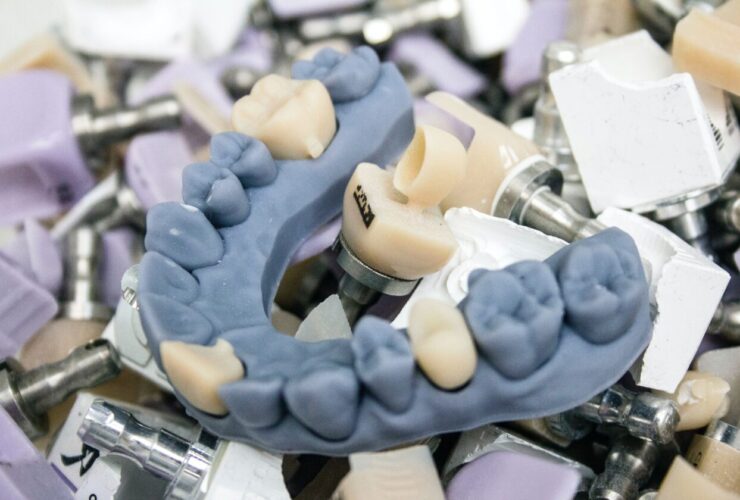Introduction
The fitness industry has witnessed a surge in the popularity of pre-workout supplements, promising enhanced energy, performance, and results. However, amidst the excitement surrounding these supplements, concerns regarding their potential for addiction and associated health implications have emerged. In this article, we delve into the intricate relationship between pre-workout supplements and addiction, exploring their key components, nutritional value, and their impact on health concerns, including caffeine addiction.
Understanding Addiction
Addiction is a complex disorder characterized by compulsive engagement with rewarding stimuli despite adverse consequences. While pre-workout supplements themselves may not contain inherently addictive substances, they can trigger dependent behaviors similar to those observed with addictive substances. One common ingredient in pre-workout supplements is caffeine, which is renowned for stimulating the central nervous system, increasing energy, and enhancing alertness. However, prolonged or excessive consumption of caffeine can lead to tolerance, withdrawal symptoms, and dependence.
Critical Components of Pre-Workout Supplements
Pre-workout supplements typically comprise ingredients designed to enhance mental and physical performance during exercise. These may include vasodilators like citrulline, stimulants such as caffeine, and cognitive enhancers to sharpen focus and clarity. While these components offer immediate benefits, they also pose risks, particularly concerning caffeine dependence and its adverse effects on the body.
Is Pre-Workout Addictive?
Yes, pre-workout supplements can be addictive, primarily due to their high caffeine content. Although most pre-workout supplements do not contain inherently addictive substances, frequent consumption of caffeine-containing supplements can lead to dependence over time. Extended or excessive use of these supplements may result in tolerance, withdrawal symptoms, and other dependency behaviors. Therefore, it is crucial to exercise caution and mindfulness to prevent addiction and mitigate associated health risks.
Nutritional Value and Health Concerns
While pre-workout supplements offer benefits such as increased energy, endurance, and focus, their nutritional profiles vary depending on formulation. Concerns have been raised regarding the impact of certain supplements on overall health, particularly for individuals with underlying medical conditions such as diabetes or hypertension, as they may contain excessive sugar or artificial ingredients. Moreover, regular consumption of caffeine before workouts can contribute to tolerance and withdrawal symptoms, further emphasizing the need for moderation.
Practical Considerations and Recommendations
Moderation and safety must be prioritized when considering the use of pre-workout supplements. Opting for products with minimal added sugar and transparent labeling can help mitigate health risks. Additionally, limiting caffeine intake and avoiding overconsumption can reduce the likelihood of dependence and associated adverse effects. Integrating pre-workout supplements into a balanced diet and exercise regimen promotes overall well-being and minimizes reliance on these products for performance enhancement.
Conclusion
In conclusion, while pre-workout supplements offer potential benefits for exercise performance, it is crucial to acknowledge the associated risks of addiction and prioritize informed decision-making. By understanding the critical components of these supplements, addressing concerns regarding their nutritional value, and implementing prudent usage practices, individuals can maximize their effectiveness while safeguarding their health. Remember, moderation and balance are vital to harnessing the benefits of pre-workout supplements while minimizing the risks of addiction and other adverse effects.
References
- Gunnars, K. (2021, May 26). Pre-Workout Supplements: Should You Take Them? Healthline. https://www.healthline.com/nutrition/pre-workout-supplements
- GoodRx. (n.d.). What Does Pre-Workout Do? https://www.goodrx.com/well-being/movement-exercise/what-does-preworkout-do
Was this helpful?

Joseph Emb, RDN
Founder of StyleVitally.com | Registered Dietitian & Wellness Advocate
What I Cover:
I’m passionate about connecting nutrition science and everyday wellness to help people live healthier, more vibrant lives. I write about evidence-based nutrition, mindful eating, sustainable lifestyles, and holistic well-being at StyleVitally.com.
My Background:
The University of Texas in Austin, where I earned my Dietetics diploma, laid the groundwork for my nutrition and health career. My training and hands-on experience taught me the science and art of using nutrition to enhance health and well-being.
Professional Journey:
I’m an RDN with lots of experience. I’ve helped people seeking tailored nutritional recommendations in clinical settings and community outreach programs. My constant learning and professional development ensure that my recommendations are always based on the latest evidence.
Ethical Commitment:
My practice prioritizes integrity. My content is transparent and objective, following the most significant ethical standards. I can give my audience unbiased advice because I’m not affiliated with food businesses or industry associations. I want to help people make informed health decisions that match their values and ambitions.
Join Me on the Wellness Journey:
Join me on the path to vitality and well-being, whether facing nutritional issues, seeking sustainable lifestyle changes, or simply wanting a better, happier you. We’ll discover how diet, mindfulness, and holistic well-being can maximize your potential.









